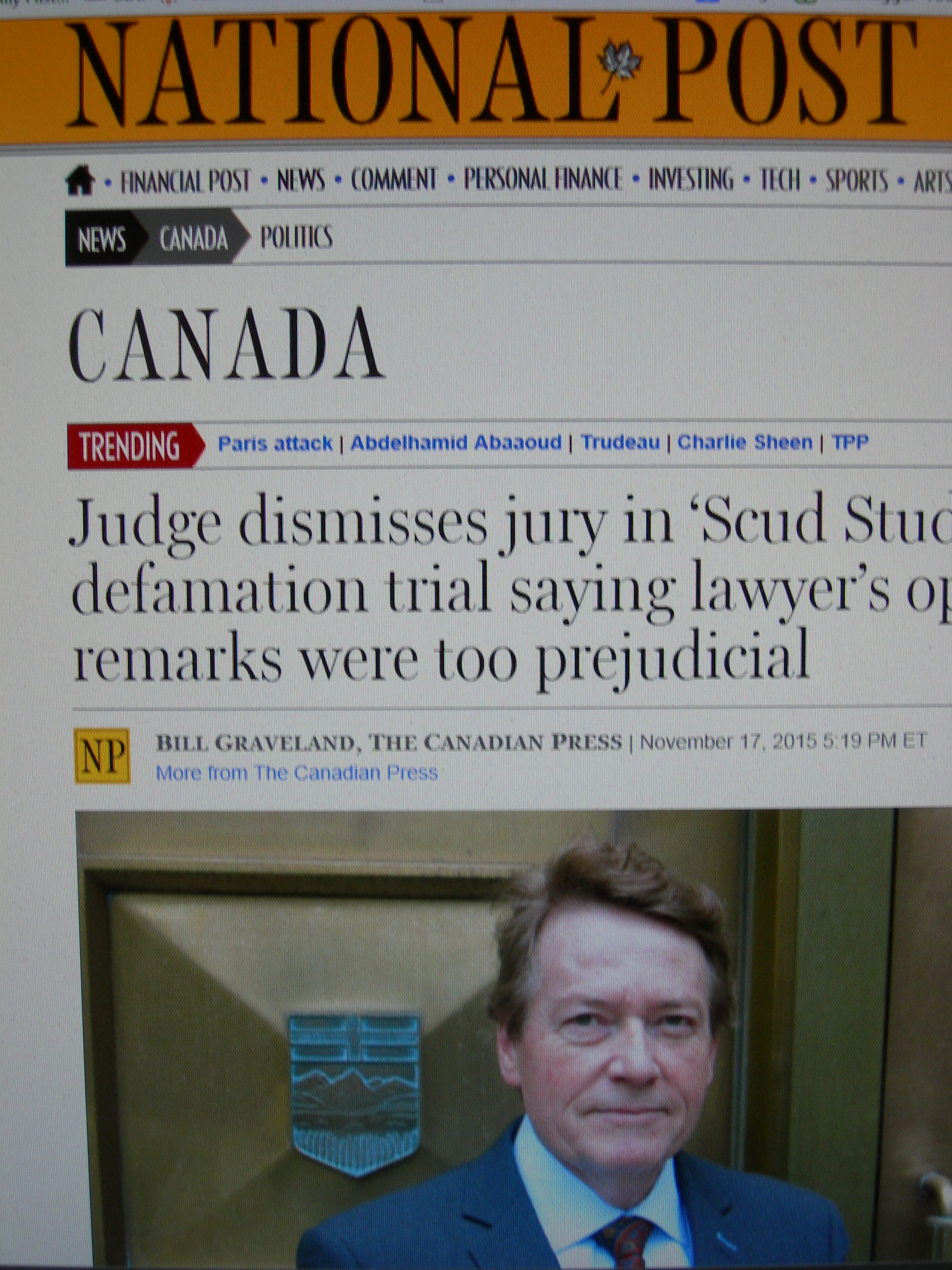The Federal Court of Appeal granted the Crown’s appeal from a Tax Court decision excusing two directors from liability for unremitted income tax deductions because there was evidence of their subjective intention to resign as directors (Gariepy v. Canada, 2016 FCA 236). Donna Elizabeth Gariepy and Sally Anne Chriss were directors of 1056922 Ontario Ltd. (“105”), a company whose affairs and business was managed by their respective spouses. The spouses had previously operated another company that had become insolvent and owed significant amounts to the Canada Revenue Agency. The spouses were aware that they could be liable as directors of the previous company for a two year period and prevailed on Gariepy and Chriss to become 105’s directors for those two years, despite their lack of involvement in the previous company and their reluctance to act as directors.
Read MoreAudit, Compliance and Risk Blog
Appeal Court Rejects Intention to Resign Reasoning in Directors’ Tax Liability
Posted by Ron Davis on Tue, Feb 07, 2017
Tags: Business & Legal, Canadian, directors, directors & officers
Ontario Court Rejects Employee’s Claim That Director Owed Duty of Care to Employee
Posted by Ron Davis on Thu, Oct 27, 2016
The Ontario Psychological Association is a not-for-profit voluntary association that aims to advance the practice and science of psychology through advocacy and education. Charlotte (Carla) Mardonet was hired by the Association in 1990 to manage its affairs and administer its finances and money. In Ontario Psychological Assn. v. Mardonet (2016 ONSC 4528 (Ont. S.C.J.)), the Court granted the Association’s motion to strike the part of Mardonet’s counterclaim alleging that the Association and its officers and directors owed Mardonet a “duty of care and a fiduciary duty which they breached as a result of their failure to provide her with the supervision, management, support and guidance that was part of their responsibility” and claiming full indemnity and contribution from the directors for any amounts that Mardonet might be liable to the plaintiff. The defendant’s counterclaim was issued in response to the plaintiffs’ lawsuit alleging the defendant had “misappropriated the funds [$1.6 million] and converted them to her own benefit and the benefit of her family members and friends,” with the assistance of her immediate family.
Read MoreTags: Employer Best Practices, Employee Rights, Canadian, directors, directors & officers
The Equal Employment Opportunity Commission (EEOC) administers and enforces most national anti-discrimination laws. As part of these responsibilities, EEOC issues formal regulations, and a host of less formal guidance documents – some directed to employers, some to employees, and/or some to the agency’s own personnel. In August 2016, EEOC reissued EEOC Enforcement Guidance on Retaliation and Related Issues (“the Guidance”), describing its approach to situations where employees claim they’ve suffered retaliation for asserting rights against discrimination under the laws EEOC administers, or even just for questioning workplace rules and situations.
Read MoreTags: Employer Best Practices, Employee Rights, EEOC, directors, directors & officers
SEC Tries Again To Increase Resource Extraction Issuers’ Reporting
Posted by Jon Elliott on Tue, Jul 26, 2016
The Securities and Exchange Commission (SEC) has recently republished requirements for publicly listed “resource extraction issuers” to report payments they make to the U.S. federal government or foreign governments, related to commercial development of oil, natural gas, or minerals. These requirements fulfill one of many duties assigned SEC by the 2010 Dodd-Frank Act, this one codified in a new Section 13(q) of the Securities and Exchange Act of 1934 (1934 Act).
Read MoreTags: SEC, Environmental, Oil & Gas, directors, directors & officers
Constructive Dismissal Claims Due to Employer Conduct
Posted by STP Editorial Team on Thu, Jul 21, 2016
Managers who abuse employees and employers who tolerate such abuse may be subject to law suits and face significant financial penalties if their actions are found to constitute constructive dismissal.
Read MoreTags: Employer Best Practices, Employee Rights, Canadian, directors, directors & officers
Director Who Decided Not To Be Involved In Business, Still Liable For Employees’ Unpaid Wages
Posted by Ron Davis on Tue, Jul 19, 2016
Mensa Williams was listed as a director in the incorporation documents for Ambrosia Elite Corp., a company run by his brother, Admin. Ambrosia was incorporated in 2007, but did not actively conduct its retail clothing business until 2008. Ambrosia became insolvent in 2014, leaving its employees with unpaid wage claims. The unpaid wage claims were pursued under Ontario’s Employment Standards Act, 2000 (ESA), and when those claims were unsatisfied, an order to pay was issued to Ambrosia’s directors including Mensa Williams.
Read MoreTags: Business & Legal, Employer Best Practices, Employee Rights, directors, directors & officers
Director’s Liability Insurance Does Not Cover Personal Guarantee Given By Director
Posted by Ron Davis on Thu, Jul 14, 2016
In Great American Insurance Co. v. Ramsoondar (2016 ABQB 73), the Alberta Court of Queen’s Bench was asked to declare that a director and officer liability insurance policy did not cover the losses claimed against Fredy v. Ramsoondar pursuant to a personal guarantee he granted to Faunus Group Inc. (FGI), a client of United Protection Services Inc. (UPSI). UPSI was a wholly owned subsidiary of United Protection Services Group Inc. (UPSG), and UPSG obtained a director and officer liability policy from Great American Insurance Co., and listed Ramsoondar as its chief financial officer on the policy.
Read MoreTags: Insurance, Insurance Claims, Canadian, directors, directors & officers
Oil Companies Must Let Shareholders Vote To Expand Reporting Relevant To Climate Change
Posted by Jon Elliott on Thu, Apr 14, 2016
In recent years, activist investors have sought to expand climate-related reporting by publicly traded companies – directly by pressuring the companies, and indirectly by petitioning the U.S. Securities and Exchange Commission (SEC) and other regulators to require additional reporting in periodic reports on the businesses’ status and prospects, and in annual meeting reports and proxy requests. SEC has been criticized for doing very little in response to these requests, but took potentially important actions on March 23.
Read MoreTags: SEC, EHS, Oil & Gas, directors, directors & officers
Super Priority Charge Over Insolvent Corporation’s Assets Despite Existing Insurance Coverage
Posted by Ron Davis on Tue, Mar 01, 2016
The Ontario Superior Court of Justice issued an initial order in an insolvency proceeding under the Companies’ Creditors Arrangement Act (CCAA) providing a $3.1 million director’s charge even though the directors were covered by an existing D&O liability insurance policy and indemnities from the company (Re P.T. Holdco Inc., 2016 ONSC 495). The CCAA proceedings involved various corporate entities involved in the Primus telecommunications service business in Canada and the United States. Primus’ business was failing and it had arranged to sell its business to another company and wished to use the CCAA to finalize the sale and distribute the sale assets while its creditors were stayed from enforcing their claims.
Read MoreTags: Corporate Governance, Insurance, Canadian, directors, directors & officers
Attempt to Make Directors Liable for Alleged Defamation in Newspapers Rejected
Posted by Ron Davis on Mon, Nov 23, 2015
In Kent v. Postmedia Network Inc. (2015 ABQB 461), the Alberta Court of Queen’s Bench granted a summary judgment application by Paul Godfrey and Gordon Fisher, two directors of Postmedia Network Inc., and dismissed the defamation claims against them by the plaintiff, Arthur Kent. Kent claimed he had been defamed in a 2008 article written by Don Martin and published in the Calgary Herald and National Post and continuing to be available on various websites maintained by Postmedia. The article at issue was published while Kent was a candidate in the Alberta provincial election and he claimed it contained false and defamatory statements that were intended to have readers infer that Kent’s career as an international correspondent was insubstantial, he was unworthy of public trust and confidence, his election campaign was incompetent and he lacked support from both his campaign team and political party. In the course of the litigation leading up to the motion for summary judgment, Kent had both Fisher and Godfrey served with a Notice of Intention to bring an Action setting out the basis for his claim of defamation and seeking removal of the article from websites. Neither Fisher nor Godfrey sought the removal of the article from those websites.
Read MoreTags: Corporate Governance, Canadian, directors










